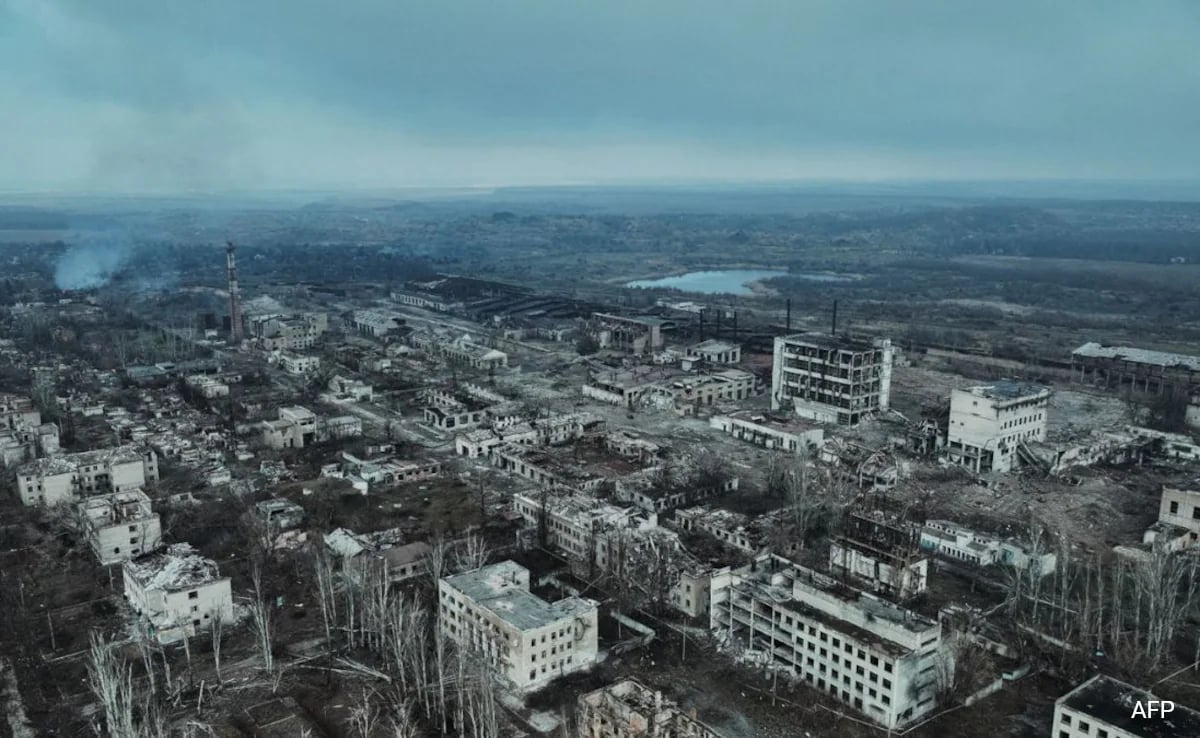 |
|
The article outlines a critical juncture in the ongoing conflict between Ukraine and Russia, focusing on the potential for a peace deal brokered by the United States, specifically involving President Donald Trump. The central point of contention is the Donbas region, an industrial heartland in eastern Ukraine that has been a focal point of the war since 2022. Russian President Vladimir Putin has long coveted this region, citing it as the 'root cause' of the invasion. The article suggests that President Trump is backing Putin's demand for control of Donbas, reportedly pushing Ukrainian President Volodymyr Zelensky to accept a deal that would cede this territory to Russia. This proposed deal has raised significant concerns, both within Ukraine and among European allies, as it could set a precedent for future Russian aggression and undermine Ukraine's sovereignty. Zelensky himself has voiced strong opposition to surrendering Donbas, warning that it could embolden Putin to launch further invasions. The situation is further complicated by Trump's perceived desire to showcase his peacemaking abilities on the world stage, potentially at the expense of Ukraine's territorial integrity. The article highlights the potential consequences of a ceasefire that cedes Donbas to Russia, including the loss of life and the destabilization of the region. It also mentions previous attempts at negotiation, including a summit between Trump and Putin in Alaska, which failed to produce a resolution. The key issue remains Putin's demand for the withdrawal of Ukrainian forces from Donbas, in exchange for a freeze on further offensives. This offer is reportedly being pushed by Trump, who has suggested that Ukraine may not be strong enough to resist Russia's demands. The article concludes by emphasizing the high stakes of the upcoming meeting between Trump and Zelensky, where the future of Donbas and the potential for a wider peace deal will be discussed. The presence of European leaders at the meeting underscores the international concern over the situation and the desire to avoid being excluded from future negotiations. The article paints a picture of a complex and precarious situation, where the fate of Ukraine hangs in the balance, dependent on the outcome of high-stakes diplomatic maneuvering and the willingness of all parties to compromise.
The geopolitical dynamics surrounding the potential peace deal are intricate and multifaceted. Russia's interest in the Donbas region stems from a combination of factors, including its strategic importance, its industrial base, and the presence of a significant Russian-speaking population. Control of Donbas would provide Russia with a land bridge to Crimea, which it annexed in 2014, and would strengthen its influence in the region. Putin's claim that Donbas is the 'root cause' of the invasion is a justification for his actions, but the underlying motives are likely more complex, involving broader geopolitical considerations and a desire to reassert Russia's power on the world stage. Trump's apparent support for Putin's demands is a controversial aspect of the situation. Critics argue that Trump is prioritizing his own political interests over the interests of Ukraine and its allies, and that he is emboldening Russia by rewarding its aggression. Trump's perspective, as indicated by his comments to Fox News, seems to be based on a pragmatic assessment of the power balance between Russia and Ukraine, suggesting that it may not be feasible to resist Russia's demands indefinitely. This approach has been criticized as a form of appeasement, which could encourage further Russian aggression in the future. Zelensky's opposition to ceding Donbas is based on principles of national sovereignty and territorial integrity. He argues that giving in to Putin's demands would set a dangerous precedent and could lead to further Russian incursions. Zelensky's stance is supported by many Ukrainians, who are determined to defend their country against Russian aggression. However, he faces immense pressure from Trump and the potential consequences of continuing the war, which has already resulted in significant loss of life and economic devastation.
The role of European leaders in this situation is also crucial. Their presence at the meeting between Trump and Zelensky suggests a desire to ensure that Europe's interests are taken into account in any potential peace deal. European countries have a strong interest in maintaining stability in the region and preventing further Russian aggression. They also have a vested interest in supporting Ukraine's sovereignty and territorial integrity. However, European leaders may also be under pressure to find a solution to the conflict, given the economic and political costs of the ongoing war. The article raises concerns about the potential for a 'showdown' between Trump and Zelensky, suggesting that their relationship has been strained in the past. Trump's alleged accusation that Zelensky was 'disrespectful' during their previous meeting highlights the potential for personality clashes to complicate the diplomatic process. The article also mentions that Trump and Putin have spoken since the Alaska summit, suggesting that there may be ongoing communication between the two leaders regarding the situation in Ukraine. The overall picture presented by the article is one of a complex and uncertain situation, with high stakes for all parties involved. The future of Donbas and the potential for a wider peace deal depend on the outcome of the upcoming meeting between Trump and Zelensky, and the willingness of all parties to compromise. The article suggests that the situation is fraught with risk, and that the potential for escalation remains high. The role of European leaders in mediating the situation is crucial, but the ultimate outcome will depend on the decisions made by Trump, Putin, and Zelensky.
Source: The Industrial Heartland In Ukraine That Is Key To Peace Deal With Putin
